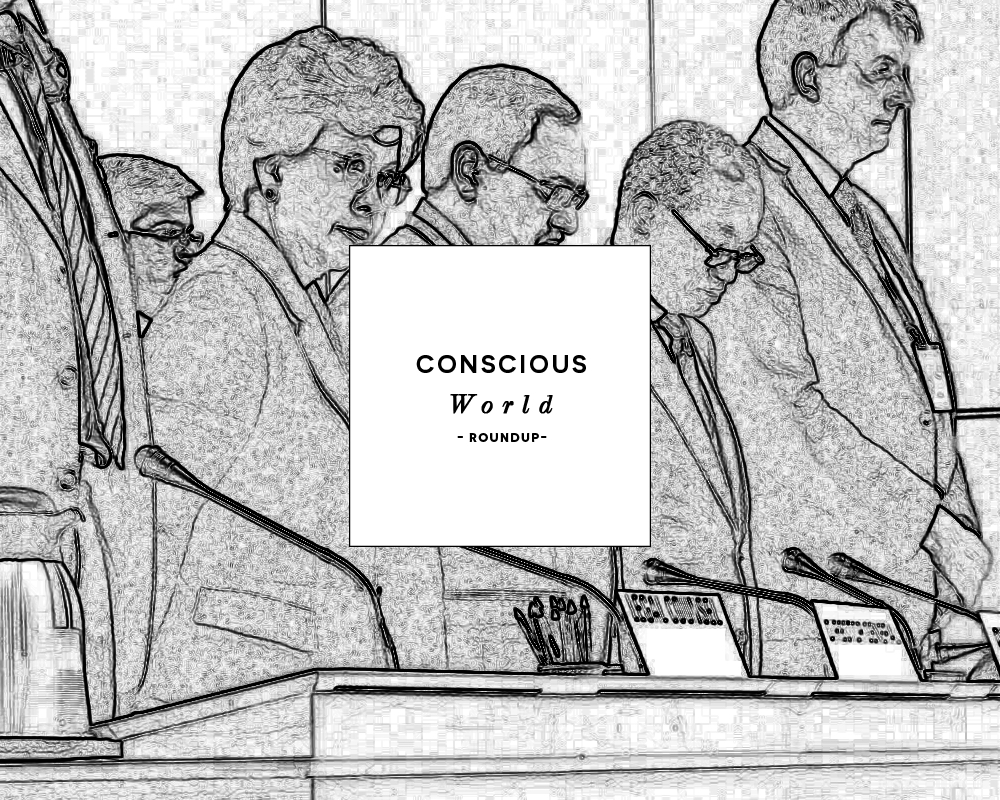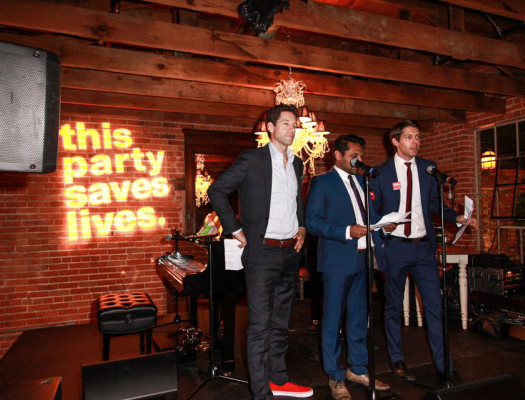Conscious World: What’s Happening From The World Health Assembly To Peanut Butter Combating World Hunger
Conscious World: What’s happening in our world right now is a new feature on www.consciousmagazine.co with a roundup of stories based on topics from global headlines, social good, innovation, science to what’s trending on Twitter. In this column, we want to provide you with information that is exciting, new, relevant, innovative, and offer you a way to create intriguing conversations on the daily starting right here. So, post your thoughts below! Also, if you ever find something interesting that is a developing idea with the potential to impact or influence, share your thoughts in our sidebar “Change The Conversation” box. Enjoy!
01 | PEANUT BUTTER TO HELP COMBAT GLOBAL HUNGER
First, the facts about malnutrition:
- 60 million children under the age 5 worldwide suffer from severe malnutrition
- 142 million children suffer from chronic malnutrition
- 1 million of these children die every year as a consequence
- Even those who survive can face severe long-term side effects
According to World Food Programme (WFP), a malnourished person’s body has difficulty growing and resisting disease, and also makes physical activity problematic and learning abilities can be diminished. Learn more about how WFP’s role in fighting malnutrition.
To combat hunger, experts report that peanut butter is a powerful solution to address this challenge as one serving of peanut butter offers 8 grams of plant-based protein and over 30 essential nutrients and phyto-nutrients. Not only is peanut butter an economical source of protein, but is shelf-life stable.
The U.S. peanut industry has come up with a global initiative called Peanut Butter for the Hungry managed by the American Peanut Council. The program is designed to help malnourished children in regions where sources are limited by encouraging peanut butter donations to the food bank in the U.S.
Continue reading about how the peanut butter solution has inspired pop-ups to global partnerships. (Source: SocialEarth.org)
02 | 102-YEAR-OLD WOMAN AFTER PUTTING HER DREAMS ON HOLD FOR 77 YEARS EARNS HER DOCTORATE
Ingeborg Rapoport, a 102-year-old woman worked on her thesis focused on disease diphtheria at the University of Hamburg in 1938 during Hitler’s dictatorship. Rapoport was denied the chance to defend her thesis because her mother was Jewish (according to the Wall Street Journal).
“My medical existence was turned to rubble,” Rapoport said. “It was a shame for science and a shame for Germany.”
This May 13, 2015 the University of Hamburg gave Rapoport a second chance at an academic assessment before the members of medical faculty who gave Rapoport her thesis approval.
(Source: HuffingtonPost)
This is an amazing story that shows you are never too old or too late to pursue your dreams!
03 | MOTORWAY SERVICE STATION MORE LIKE A FARM SHOP
In Gloucester, a different type of motorway service station (or gas station) is setup to provide “freshly prepared food from locally grown produce and provides significant funding for local community projects and employment opportunities for residents who live on nearby housing estates.”
The idea to set up a community giving motorway service station started with Mark Gale 21 years ago, who today is, the chief executive of Gloucestershire Gateway Trust, a local regeneration charity and a partner in Gloucester Services. Over two decades ago, Mark Gale worked on neighborhood projects in the Gloucester area and eventually had a cooperative of 10 neighborhood projects. After a study trip to the US, Gale discovered it was possible to open large projects that could benefit the wider community. It wasn’t until 2002 that Gale investigated the idea of opening a service station and it took another 5 years to find the right partners with shared values.
In May of 2014, Gale opened up the first give back motorway service station that in comparison to other service stations looked more “like a farm shop adorned with artwork about the neighboring area to celebrate its link to the local community. A fruit and vegetable-growing community project has also been established, which Gale says will provide opportunities for people with learning disabilities and mental health issues to get involved on the site.”
Continue reading about this project more in depth via ThirdSector.co.uk.
04 | 68TH WORLD HEALTH ASSEMBLY IN GENEVA
On May 18 in Geneva, Angela Merkel, Chancellor of the Federal Republic of Germany addressed delegates, health ministers, and other groups that contribute to improving public health on the first morning of the Sixty-eighth World Health Assembly, “the only international organization that has universal political legitimacy on global health issues” said by Merkel.
Chancellor Merkel called for a new plan to deal with “catastrophes” like the recent Ebola outbreak and pledged that the G7 would focus on fighting antimicrobial resistance and neglected tropical diseases. She emphasized the need for all countries to have strong health systems and highlighted the key role of health in sustainable development.
Other highlights include a dedicated staff to WHO’s new program for health emergencies uniting outbreak and emergency resources. The plan, which has a contingency fund of $100 Million will have the following:
- Its own business rules and operational platforms
- Clear performance metrics, built on partnerships with other responders
- A new global health emergency workforce
Other topics to be covered and discussed at the World Health Assembly include:
“Resolutions and decision points on antimicrobial resistance, Ebola, epilepsy, the International Health Regulations, malaria, nutrition, polio, public health, innovation, and intellectual property, substandard/spurious/falsely-labelled/falsified/counterfeit medical products, surgical care and anesthesia.”
You can catch the live web stream from the 68th World Health Assembly from May 18 – May 26, 2015
(Source: World Health Organization) Join the conversation here and follow live updates via Twitter with #WHA68
05 | A COVETED SOCIAL INNOVATION STRATEGY
In the June 2015 issue of Harvard Business Review, author Gary P. Pisano (who has two decades studying and consulting for companies in a broad range of industries) states that all companies need to invest time and money into an innovation strategy. Many companies like Polaroid, Nokia, Sun Microsystems, Yahoo, Hewlett-Packard, and countless others have found the capacity to innovate to be hard, therefore frequently fail. To this point the author states the reasons for failure go deeper than the common notion of “failure to execute”, but has to do with the lack of an innovation strategy.
What does an organization need in order to successfully clearly articulate an innovation strategy—one that’s closely linked to a company’s business strategy and core value proposition?
An organization should start with a clear understanding and articulation of specific objectives related to helping the company achieve a sustainable competitive advantage. A robust innovation strategy should answer the following Qs:
- How will innovation create value for potential customers?
- How will the company capture a share of the value its innovations generate?
- What types of innovations will allow the company to create and capture value, and what resources should each type receive?
Read more in depth provided with examples via Harvard Business Review
Join the conversation by posting your thoughts below.
This week’s roundup was co-created by Rachael Baxter-Lechliter and Elena Baxter
FROM THE EDITOR
At Conscious, we are inspired by remarkable people, and so we set out to tell stories that highlight social good, global initiatives, community development, innovation and more. You can read more stories like this when you pick up your copy of Conscious Magazine. Subscribe today via our Conscious Shop and subscribe to Conscious Updates.




